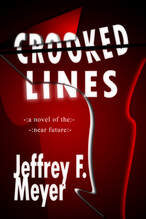 Available in print and e-Book Available in print and e-Book Fans of Jeffrey F. Meyer may be surprised to know that he was a member of the Franciscan Order and studied to be a priest for seven years. This important time in his life, combined with thirty-five years as a professor of Religious Studies, informs, inspires, and influences his latest novel, Crooked Lines. Crooked Lines follows Jeffrey's award-winning debut historical fiction novel, A Call to China, heralded by Kirkus Reviews as "An engrossing fictional exploration of family, culture, and what it means to belong in both China and America." Set in the late 2020s, Jeffrey's latest visionary work of fiction asks the question: Can our hero and his strange band of friends find the courage to restore democracy to an America teetering dangerously on the precipice of authoritarian rule? When asked about his motivation to write, Jeffrey notes, "Since I retired from UNC Charlotte in 2008, I have spent most of my time writing fiction, a first novel that I could never get right, then A Call to China, now Crooked Lines, and I’m working on another novel, now about half way through the first draft. I consider myself lucky to have this inner urge to write fiction¸ which I suppose was inborn, something in my heart and mind that can’t be fully explained." And Crooked Lines is no ordinary literary journey. The reader will encounter action, humanity, humor, and serious issues, all wrapped into a framework based upon an abridged translation of the Chinese classic Journey to the West. This pilgrimage story follows a famous Buddhist monk traveling from China to India in order to bring back to his native country all the sacred scriptures that were lacking in China. The monk seems unlikely to succeed. In Crooked Lines, Bishop Donovan is an ordinary man, neither brilliant nor possessed of heroic virtue. Set in a future where authoritarian governments have taken hold around the world and the planet heads toward a climate disaster, Bishop Donovan and two unlikely companions—an Asian monk and a former pro-football player—risk everything to share a way forward with the world. Accepting the complexity of all human beings, Crooked Lines also deals with a number of important issues: authoritarian government, the threat of climate change, the intersection of religion and politics, the place of faith in a cynical world, women’s role in traditional religious institutions, and the meaning of success and failure as individuals and institutions strive to realize their ideals. We chatted with the author about his new novel in advance of it's upcoming release. Crooked Lines is available September 18, 2020 in print and e-Book. Interview with author Jeffrey F. Meyer What fact about yourself would surprise your fans? Readers might be surprised to know that I was a member of the Franciscan Order, studying to be a priest, for seven years. I left the order about a year and a half before ordination, but my time in the Order was very important in my life. I became aware that a number of my colleagues who also left the Order resented the time wasted and years lost. I did not. I felt that I gained a lot by the experience, maybe the most important thing was learning how to live in a community. Another thing was learning of the importance of religion or spirituality in human life, a conviction I have never lost. That conviction is obvious in Crooked Lines, as it is in all my writings, fictional and academic. Where do you find joy in life? Exploration and travel. Learning about nature, in the manner of Mary Oliver (for its spiritual meaning), and exploring and foreign lands and peoples. I’ve spent, for example, about three years of my life in Asia, mostly China and Taiwan, amazed and intrigued at times at how different these cultures are from my own, and at other times marveling at how much alike all of us are, from the east or west, as human beings. Tell us something about Crooked Lines that's not in the summary. The inspiration for Crooked Lines comes from an Asian source. About three years ago I was reading an abridged translation of the Chinese classic Journey to the West, a sort of pilgrimage story in which a famous Buddhist monk goes from China to India in order to bring back to his native country all the sacred scriptures that were lacking in China. The monk seems unlikely to succeed. He is often diffident, somewhat fussy about his own comfort. How will he be able to make the arduous and dangerous journey across the Silk Road to India? He does it by finding three companions who will accompany and help him, the chief one being Monkey, probably the most popular character in all of Chinese fiction. The three are mischievous, sometimes badly behaved characters as well as “superheroes” so there is a strong element of fantasy in the novel. My aim was to retell this story in a western setting, preserving the serious religious purpose while using elements of fantasy and humor. What books did you love growing up? As a kid I remember riding my bicycle to the local library in Cincinnati, where I grew up, and checking out books regularly. I read all the Wizard of Oz series, the Hardy Boys (young detectives) stories, and I recall going through an African period, reading stories about its fascinating animals and terrain. I can remember only one title, Treks Across the Veldt, though I read many. These were books written from the imperialist’s point of view, glorifying the big game hunters and explorers, with the actual people of Africa playing secondary roles as scouts and bearers. But early in my teen age years I began to read adult books that left a permanent mark on my mind, like Pearl Buck’s The Good Earth, about a Chinese farmer and his family. Another was J.D. Salinger’s Catcher in the Rye. I was also deeply moved by the Anne Frank story. Why did you pick this particular subject matter to write about? Besides my love for the original story of Journey to the West, I took up this novel as a way to touch on three issues that I consider crucial at this time in American history, and really, world history. The first is the growth of authoritarian governments around the world and the corresponding weakening of democracy, which can be seen right now in the U.S., China, India, the UK, Poland, Hungary, Brazil and the Philippines. The second is climate change, and the third is the role of women in world religions—name me a single world religion where the patriarchal model does not dominate. I hope these issues become more tangible as the reader encounters them in real social settings in the novel.  A professor at the University of North Carolina at Charlotte for thirty-five years, Jeffrey F. Meyer taught Asian religions in the Religious Studies department, with a focus on Buddhism and Daoism. He is married with three grown children and currently living in Davidson, North Carolina. His first novel, A Call to China, is a Silver winner in the 30th Annual Benjamin Franklin Awards and a finalist in the 13th Annual National Indie Excellence Awards and the 2019 NextGen Indie Book Awards. Follow the author on Goodreads.
0 Comments
As we’ve discussed before, your author brand is crucial to your success as an author. A huge part of this brand is marketing. Your content, social media, and overall marketing strategy are all critical components of you and your book's presence to readers and potential fans. But sometimes it can seem like a lot to manage, right? What if we told you that you didn’t actually have to do it all on your own? What is a virtual assistant and how can one help me as an author? Having a virtual marketing assistant is useful on all fronts of the marketing side of your brand. A virtual marketing assistant can do things like reach out to book bloggers and influencers for reviews, create newsletters to go out to your readers, and create content and manage your social media. This doesn’t necessarily mean that you won’t have a hand in the marketing side of things, but it will significantly alleviate the pressure on you to perform all marketing tasks on your own. Make a list of tasks you want help with Ideally, once you hire a virtual assistant, you will create a list of tasks for him or her to perform. This list will, of course, vary from author to author. It’s important to know what tasks you want your virtual assistant to accomplish before you even search for one to ensure that you hire exactly who you’re looking for. Some things to consider putting on the list could be:
A good way to determine what to have your virtual assistant work on is to make a list of things you either dislike or avoid and things that don’t really need your direct input. By doing this, it frees you up to work on the things that do need your direct input – like edits to your manuscripts, important meetings, and speaking engagements. A clear idea of what you want your virtual assistant to do makes it easier on both of you moving forward.  Budget to fit your needs Virtual assistants typically operate as freelance contractors – similar to graphic designers or marketing specialists. When you hire one, you’ll typically pay somewhere between $10-$25/hour, depending on the virtual assistant’s skill level and experience (some may cost more but if you keep searching, you'll find the right fit). This makes it easy for you to stay within a budget, because a virtual assistant will work within the budget you set. For example, if you have a budget of $150 and you find a virtual assistant who charges $15/hour, you can request 10 hours of specific tasks and know that you will stay within your budget and get done what needs to get done. You can also work with the freelancer to create a monthly budget for a specific number of hours. For example, you can hire someone to manage all your social media platforms by setting a set number of posts per week (say 1-3) across your platforms (say, Facebook, Instagram, and Twitter), and agreeing on a package prices with your freelancer (say, $150 per month for no more than 10 hours of time). It often helps to have a discussion with a potential freelancer about how they prefer to work, but the effort is worth it!  How to find a virtual assistant So now that you have a general idea of what a virtual assistant is and how they can help you with the marketing side of your job, you might be wondering how to find one! There are several different ways to find a virtual assistant, but we’ll give you tips on some of the easiest ways. Start with a simple Google search. Searching “Virtual Marketing Assistant United States” will yield different companies through which you can hire a virtual assistant. Of course, not every company will be a perfect fit, so you’ll need to set aside some time to look through the list of companies and search by the set of skills you’re looking for to find the perfect virtual assistant for you. A popular site to hire freelancers through is Upwork. If you visit their website, there is an option on the homepage to find a freelancer in the “Admin Support” field. You can then select the “Virtual/Administrative Assistance” option.
Another great way to find a virtual assistant or social media manager is through LinkedIn. You can search for local people in your network with expertise specifically in social media and marketing, content creation, or managing your schedule, if that's what you need. Belay services offers website and social media specific support as well. Learn more on their website about how to work with their assistants.  Take the time up front for future success with your VA Although it may take some extra time up front to sit down and come up with a game plan for hiring a virtual assistant, it will save you time in the long run. Hiring a virtual assistant is a great way to prevent yourself from burning out on the tasks you don’t enjoy as much about your job. If, after reading this, you’re interested but still unsure if a virtual assistant is the best option, remember that you can start small! Try hiring a virtual assistant for just one or two small tasks at first to ease yourself into it, and then go from there. There’s no exact formula for what your virtual assistant needs to do, so you have the freedom and liberty to craft it to what you need specifically. With a little research, patience, and open-mindedness, you may find exactly what you're looking for to help boost and maintain your author platform. 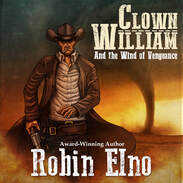 Author Robin Elno's latest installment in the award-winning Clown William series enjoyed a successful virtual blog tour throughout February. IngramElliott Publishing partnered with Premier Virtual Author Book Tours for several stops at prominent book bloggers around the globe, including reviews, excerpts, and exclusive interviews with author Robin Elno. Thanks to our reviewers and fans everywhere for their tremendous support for Clown William and the Wind of Vengeance! Enjoy the reviews below as well as two special author interviews hosted by International Book Promotion and Teddy Rose Book Reviews. Praise for Clown William and the Wind of Vengeance
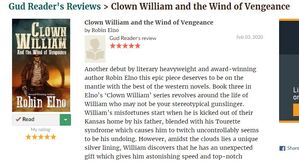 The story is highly spectacular, with the author taking his time in matters of character development with his writing being so vivid and well researched. Elno paints a vivid landscape that transports the reader. For western fiction literature lovers, Clown Williams is an outstanding masterpiece which is not only worth your time but also deserves a place on your shelf. -Gud Readers review, Goodreads Learn more about the Clown William series and find all three books in print and e-book on Amazon, Barnes and Noble, Indiebound, and anywhere books are sold.
We've talked much in our blog about the importance of social media and building an author platform through an online presence. As the leaves change color, consider changing your approach as well. It can be a challenge to make time to keep up online presences but as the leaves go on falling, the world of social media goes on spinning. We get feedback from partners all the time on how important it is that an author have a strong presence online when searched for. An author's social media platforms are used in marketing programs, book awards programs, blog tours and reviews, and even purchasers can find you if you put yourself out there where you can be found. This fall, we encourage all authors to take a fresh look at their platforms by following three simple steps.
Even if you are not a pro at this, what matters is that you stay active. It really is about connecting to other people which may include other authors, readers and fans, or groups that you are interested in.
A few pro tips
Lastly, if you don't have the desire, interest, or time in doing all of this, search for and hire a virtual marketing assistant to help you do all these things . . . and it won't break the bank! You can specify marketing assistants or social media assistants and hire someone to help build your brand, keep your sites fresh, and work with you on connecting to followers. Search on LinkedIn or Google for people in your area (if you want someone local) or work with people around the globe offering their services. You can also find students at local colleges that may be interested in the job or just through people you know and already work with. Ask around! When it comes to Goodreads, the possibilities as an author are endless. We've talked much in the past about Goodreads as an essential tool for your author platform. (Read a couple of our past blog posts on Goodreads and other social media strategies here). Goodreads is owned by Amazon and it's a true community of readers and librarians that take their reviews seriously! They are avid readers and writers and make it very easy to connect with others. As an author they offer amazing tools such as a Goodreads Author Profile where you can connect or create a blog, create a giveaway, and participate in a plethora of community groups tailored to various genres and interests. One major way to use Goodreads well? Book giveaways. But wait! First things first. It's critical that you spend some time creating a compelling Goodreads presence first. Goodreads makes it very easy to give and get reviews, update your author profile, create or link to an author blog, and connect with other readers and writers. The more positive reviews you have, the more likely someone is to buy your book if they click on your ad. Spend the time necessary to establish this presence before spending the money necessary on advertising your book and you will be more likely see favorable results. Let's talk about Giveaways! Goodreads giveaways have been shown to dramatically increase book sales, and they’re so simple! They come in two options – standard or premium. Read all the detail here and get the quick notes below! A standard giveaway will cost you $119, no matter how many books you give away within it. Everyone who enters will add your book to their Want-to-Read list, all of your followers and anyone who already has your book on their Want-to-Read list receive a notification of a new giveaway, Goodreads emails the winner of your giveaway reminding them to rate and review your book, and your giveaway is featured in the Giveaways section of the website. A premium giveaway will cost you $599. You get everything from the standard giveaway, as well as premium placement on the Giveaways page. Additionally, Goodreads will send a message (that you create) to the entrants who don’t win, which could increase your book sales and build relationships with readers. For the giveaway, you select the span the giveaway runs and how many copies you want to give away. As the author, it’s your responsibility to get your book to the winner in a timely manner and to cover the cost of shipping. While it will cost you less to give away one book, you will get more reviews from readers if you give away more. You’ll want to make your giveaway description as attention grabbing as possible. Is it an autographed copy? Have you won any awards for it? Why should readers want to sign up to receive a free copy of this? Remember that they can simply check your book listing on the Goodreads site to read the synopsis of your book, so don’t make the only description! Pro tip: If you schedule the giveaways for a few days in the future, you won’t lose any run time to Goodreads’s approval process. Also, if you select a short span for the giveaway (think 2-3 days), your giveaway will appear on both the newly listed and the ending soon pages, meaning you will get double the exposure at the same time!  A note about self-serve ads on Goodreads Unfortunately, Goodreads is retiring their self-serve ad feature as of next month. They will focus on giveaways and other advertising opportunities. If you already have a self-serve ad funded and created you can still edit and run it through next February. These ads run (used to anyway) on a cost-per-click model. You set the budget, and your account gets charged for each click until the budget runs out. Many authors who have used this service say not to plan on immediate results from your ads. However, after time, the momentum usually builds, and the more exposure the book gets, the more interest there is in it. Check out your author dashboard for whatever new advertising opportunities Goodreads will roll out next or to manage anything current you have going on until February of next year. |
Archives
June 2024
Categories
All
|
- Welcome
-
Titles
- A Call to China
- Benny Moon: Racing the Medicine Wheel
- Benny Moon Eats Dirt
- Between the Ocean and the Stars
- The Button Collector
- Clown William
- Clown William and the Lincoln County War
- Clown William and the Wind of Vengeance
- The Cornbread Letters
- Crooked Lines
- First Line of Defense
- Highlights of Palmistry
- Hungry
- Indian Country
- Island Whispers
- JuJu Justice
- Ms. Mulligan and the Enchanted Ice Cream
- Mystery Muffin & Soda Pop Slooth: The Legend of Mr. Creepy
- Mystery Muffin & Soda Pop Slooth: The Ghost of Crippler's Creek
- Path of the Half Moon
- Courses of the Cursed
- Merging Paths
- Surrender
- TimeLock
- TimeLock 2: The Kyoto Conspiracy
- The Timestream Verdict
- Whispers on the Wind
- WWCC Heroes
- Submissions
- News & Updates
- Contact
- Bookstore
- Welcome
-
Titles
- A Call to China
- Benny Moon: Racing the Medicine Wheel
- Benny Moon Eats Dirt
- Between the Ocean and the Stars
- The Button Collector
- Clown William
- Clown William and the Lincoln County War
- Clown William and the Wind of Vengeance
- The Cornbread Letters
- Crooked Lines
- First Line of Defense
- Highlights of Palmistry
- Hungry
- Indian Country
- Island Whispers
- JuJu Justice
- Ms. Mulligan and the Enchanted Ice Cream
- Mystery Muffin & Soda Pop Slooth: The Legend of Mr. Creepy
- Mystery Muffin & Soda Pop Slooth: The Ghost of Crippler's Creek
- Path of the Half Moon
- Courses of the Cursed
- Merging Paths
- Surrender
- TimeLock
- TimeLock 2: The Kyoto Conspiracy
- The Timestream Verdict
- Whispers on the Wind
- WWCC Heroes
- Submissions
- News & Updates
- Contact
- Bookstore




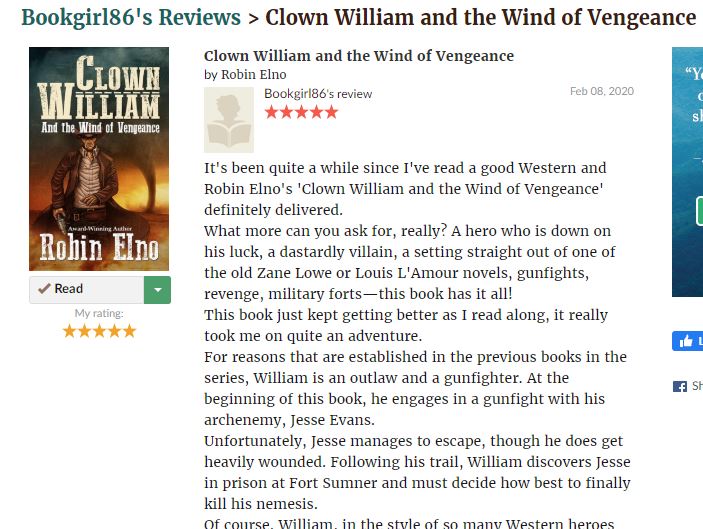
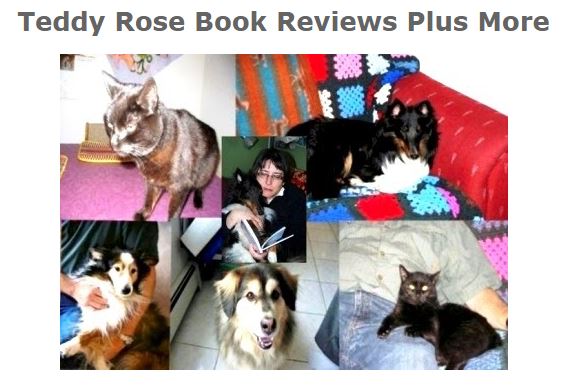
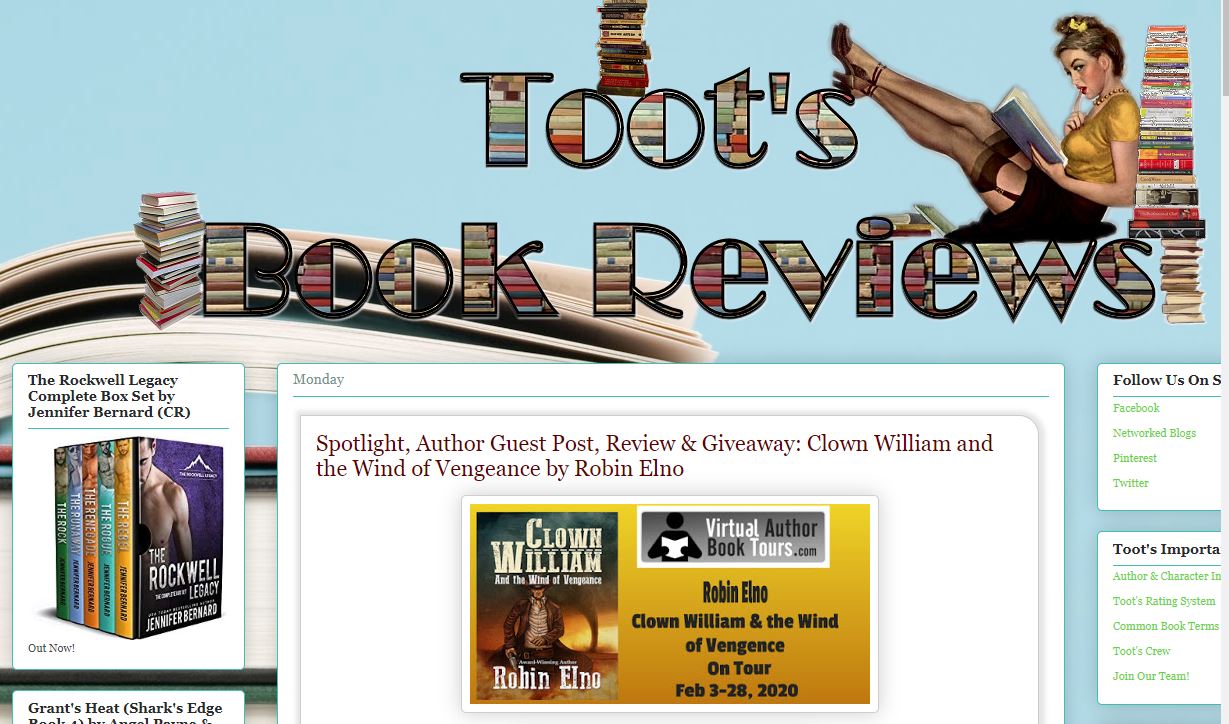
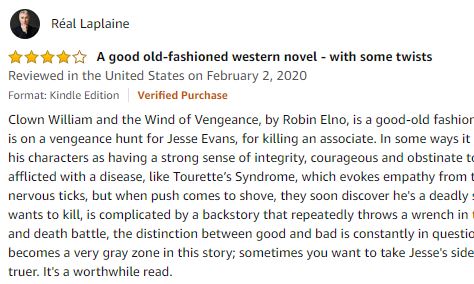

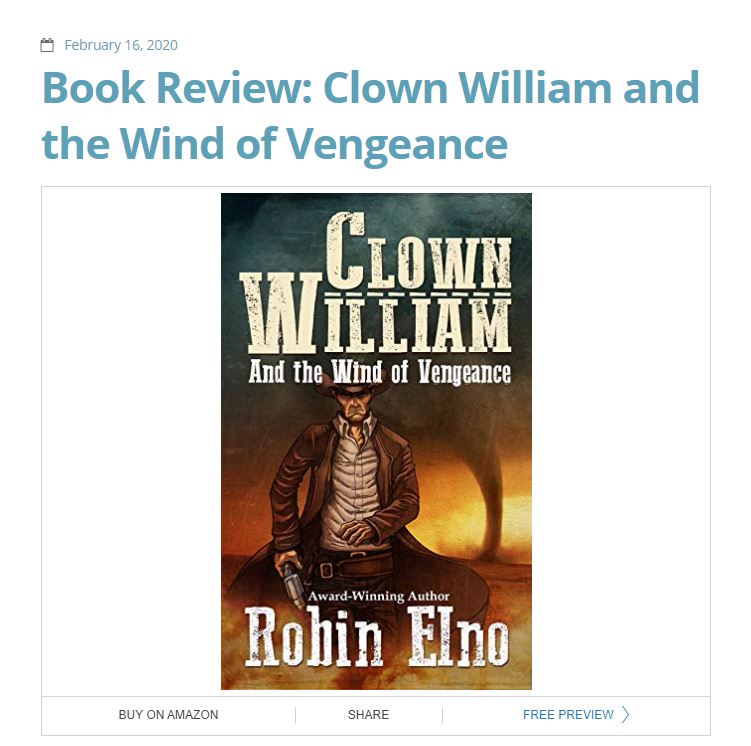
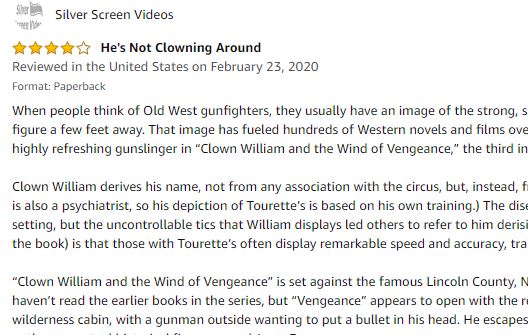
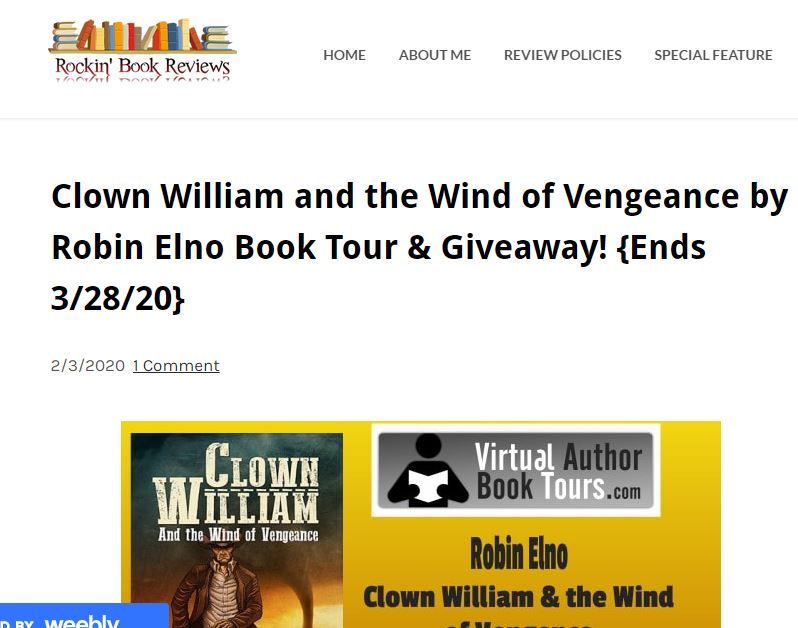

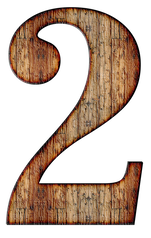


 RSS Feed
RSS Feed

